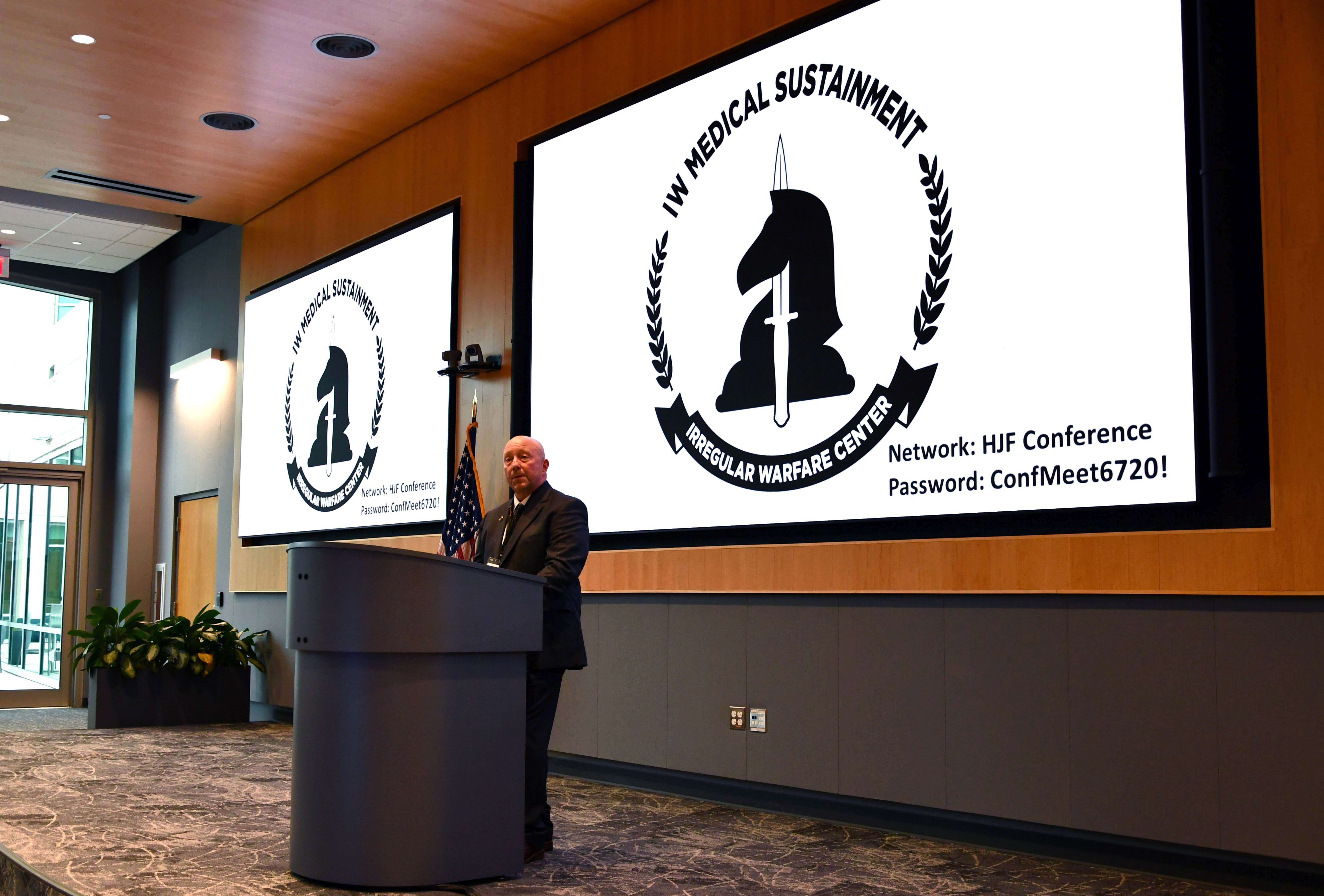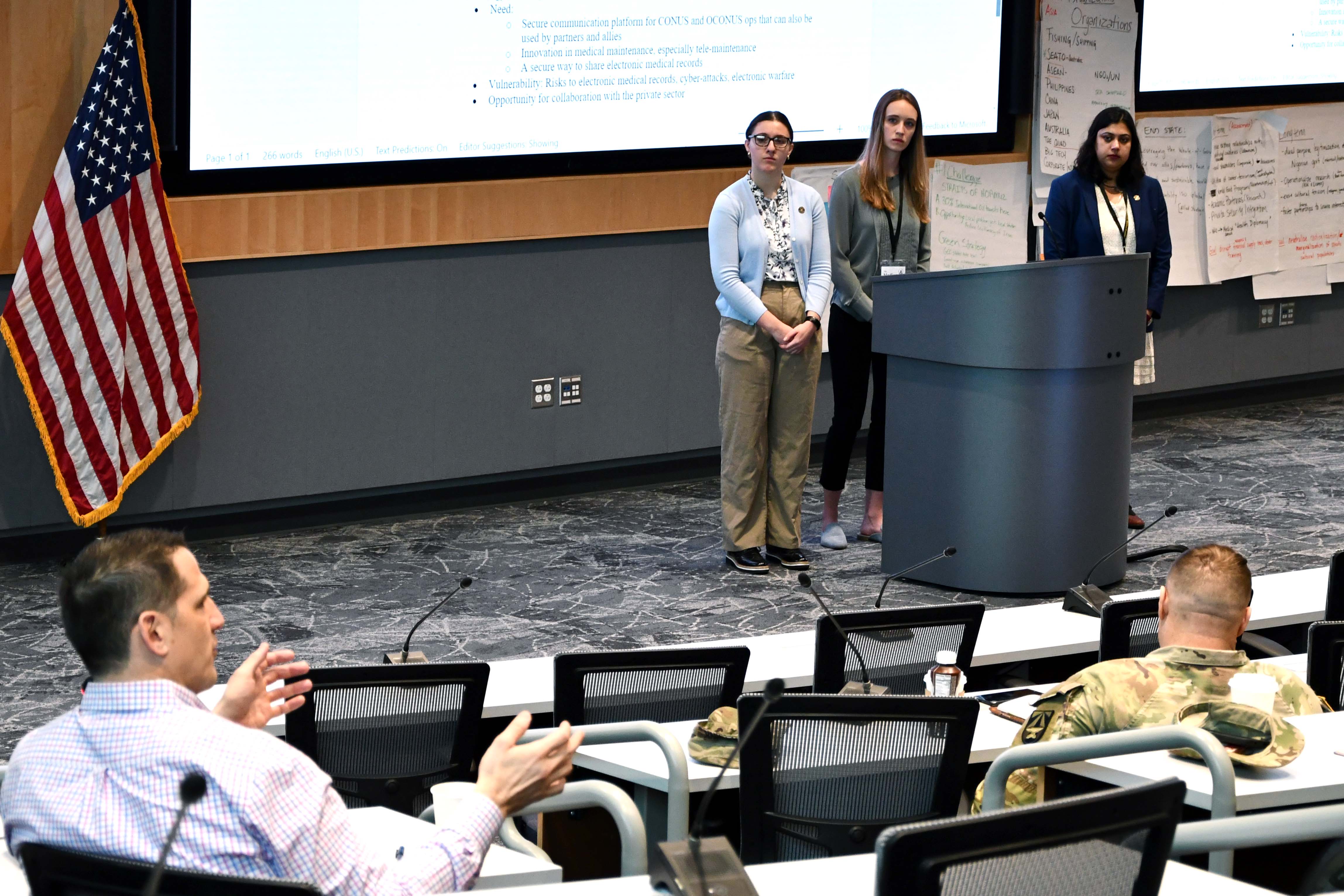
IWC Hosts 4-Day IW Medical Resiliency and Sustainment Working Group Event
The Irregular Warfare Center (IWC) hosted its IW Medical Resiliency and Sustainment Working Group event from January 30 – February 2, 2024, at the Henry M. Jackson Foundation for the Advancement of Military Medicine in Bethesda, Md.
“I would like to extend a special thank you to each and every individual who helped make our IW Medical Resiliency & Sustainment Working Group event successful, thought provoking and engaging,” said Dr. Dennis Walters, IWC Director. We are very much looking forward to all of the participant’s input and feedback, which is one essential tool the Center utilizes in planning and executing IW-related events.”

Walters added, “Our goal is to continuously increase and grow our ability to serve as the central mechanism for developing the Department of Defense’s (DoD) irregular warfare knowledge and advancing the Department’s understanding of IW concepts and doctrine in collaboration with key allies and partners.”
The IW Medical Resiliency and Sustainment Working Group featured more than 70 medical professionals from across the Department of Defense (DoD), academia, and industry, strategically challenging themselves in various scenarios encompassing medical challenges in denied and contested areas to identify gaps in doctrine and training and build current capabilities to improve prolonged casualty care in austere environments.
“The imperative for the Irregular Warfare Center (IWC) to host events uniting medical professionals and the Irregular Warfare (IW) community stems from the heightened capability and intent of adversaries to disrupt our Joint Logistics Enterprise,” said MG (R) Edward F. Dorman III, IWC Senior Advisor and Valen’s Global contractor. The medical function is inextricably linked to the logistics function as both are major components of the Sustainment Warfighting function. This challenge surpasses that posed by belligerents in the early 21st century, introducing a complex threat across diverse operational layers and domains. Adversaries now possess sophisticated means to disrupt logistical support, spanning from the industrial base and storage facilities to transportation, medical networks, and extending to the tactical edge.”
The 4-day event included a variety of guest speakers and irregular warfare subject matter experts, various briefs on irregular warfare medical topics, as well as break-out sessions & wargames to identify capabilities, gaps and share findings to support the IWC’s medical security cooperation efforts.

The wargames facilitated key leaders’ strategic austere medical decisions to validate capabilities, identify critical gaps and develop tactics, techniques, and procedures (TTPs) for operational medics with focus on survivability, restricted communications, clandestine evacuation, and prolonged field care.
The simulation consisted of two main phases: drafting strategy and implementing strategy to challenge participants to think strategically and tactically about issues of sustainment, logistics, and grey zone conflict. The exercise placed participants in the shoes of a strategic planner, facing realistic and complex scenarios involving U.S. adversaries as participants will plan global sustainment operations for irregular warfare.
“This is the first Medical Resiliency and Sustainment Wargame the IWC has held, and my team and I are proud to have been able to create it,” said, David Benson, IWC SME and Director of Wargames at Valen’s Global. “Pushing sustainment and medical considerations to the forefront of plans and strategies will become essential for success in international competition.”
During the simulation, participants played roles beyond their current unit or agency affiliation. Red team personnel served as advisors to the leaders and militaries of Opposing Forces, while blue team role players acted as senior advisors to U.S. leadership, advising on the role of all non-governmental entities (business sector and non-government organizations) or U.S. allies.
An important outcome of the scenario was to identify unclear authorities and determine the types of research needed. What is learned from these information requests will be used to inform future TTX activities and IWC research.
Dorman added, “Critical gaps persist in the synergy between the U.S. military, government agencies, and internal resources, especially in navigating the complexities of conventional and irregular warfare influenced by potential adversary actions across the competition continuum. The IW Medical Resiliency Working Group plays a pivotal role by employing wargaming and tabletop exercises to bring attention to the intricacies of Irregular Warfare. It emphasizes the urgent need for well-defined operational plans, optimized force structures, and the allocation of funding and authorities to ensure the development of resilience and resistance capacities.”
The IWC serves as the central mechanism for developing the Department of Defense’s (DoD) irregular warfare knowledge and advancing the Department’s understanding of irregular warfare concepts and doctrine in collaboration with key allies and partners.
The Center’s foundation is built upon three Lines of Effort:
- AMPLIFY and collaborate to build an innovative and adaptable global networked IW community of interest.
- Strategically ILLUMINATE current and future irregular threats, crises, and obstacles.
- ADDRESS current and future irregular threats to the US, allies, and partners by providing optionality to leaders.
Through these LOEs, the Irregular Warfare Center addresses current and emerging security concerns and challenges with world-class research, rigorous analysis, top-tier strategic education and training for U.S. and international partners.